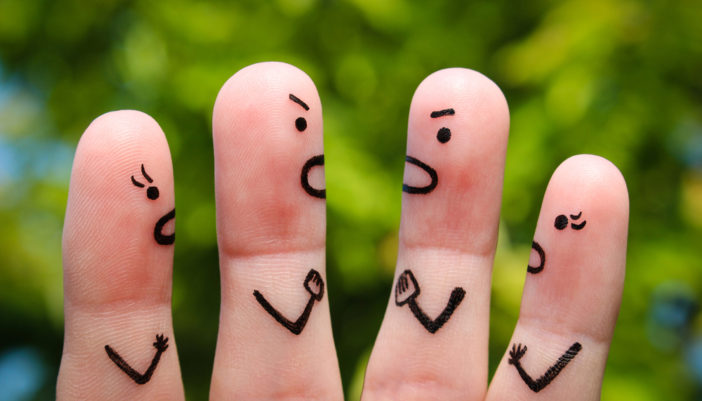How You Learned to Cope
How does your family manage anxiety? We learn how to cope with stress in our early years. We experience, watch, and are taught both directly and indirectly how to cope in either healthy or unhealthy ways. They taught us what they knew, and then layers of life experiences were piled on top. On the podcast today, we talk about some of the roots of anxiety, so we can understand its origins.
There is, of course a long continuum of coping styles, and it’s helpful to know just what you learned early on, why you think that is, and how you have applied said coping in your adult life today. Here are a few categories that are condensed a bit but here simply to get you thinking…
- The Chaos House. Often this was a home where substance abuse or other chaotic behaviors such as rage, emotional and/or physical abuse happened. This may have been blended with emotional and/or physical neglect. Needs for safety, love and trust were not able to be met consistently, thus creating PTSD, and often life-long general anxiety as kids reach adulthood.
- The Fire Brigade. Your family was well trained and seasoned when it came to creating, marinating in and then putting out fires…several times a week sometimes. The focus was usually on the problem…be it a person in the family, others “out there” or circumstances. Life was reactionary, with little focus or talk of planning or prevention. Boundaries were hard to find here. Adult tantrums were not.
- The Denial Perfecters. These folks struggled to confront and accept reality. Often avoidant, problems may have been fought about but never truly addressed. Often the children’s needs or problems were ignored due to the system being overwhelmed. Thus, problems remained but were not resolved. Anxiety was rampant yet not talked about. Vulnerability was not modeled or honored. Folks stayed up in their head.
- The Addressers. This family worked at talking openly about problems in appropriate ways, without tons of emotion. There was the understanding that working toward acceptance and solutions was the way to go. Feelings were honored and yet worry without action was not. There were boundaries, and thus a greater amount of trust.
If your early experiences provided a daily sense of eggshells on the floor, or inconsistency of any kind – even financial security, kids grow up being much more vigilant, disconnected from their true feelings (because the family couldn’t handle nor honor those) and usually suffer from anxiety thereafter. This can be camouflaged by staying very busy, very stressed or medicating the anxiety with substances, food, sex or spending.
In other words, anxiety can wear many different disguises and therefore look like other things, like reactivity, stress, irritability and a host of physical complaints. If you grew up not learning how to manage anxiety in a healthy way, take heart. Learning to grieve, learning to breathe, meditate, journal and use gratitude and solution-focused thinking will get you there eventually. Some of this may require the help of a therapist, group or coach depending upon the severity of your pain.




